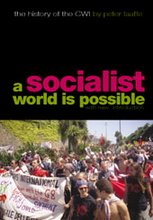Fidel's Final Victory

CUBA AFTER CASTRO?
Ever since Fidel Castro gained power in 1959, Washington and the Cuban exile community have been eagerly awaiting the moment when he would lose it -- at which point, the thinking went, they would have carte blanche to remake Cuba in their own image. Without Fidel's iron fist to keep Cubans in their place, the island would erupt into a collective demand for rapid change. The long-oppressed population would overthrow Fidel's revolutionary cronies and clamor for capital, expertise, and leadership from the north to transform Cuba into a market democracy with strong ties to the United States.
But that moment has come and gone -- and none of what Washington and the exiles anticipated has come to pass. Even as Cuba-watchers speculate about how much longer the ailing Fidel will survive, the post-Fidel transition is already well under way. Power has been successfully transferred to a new set of leaders, whose priority is to preserve the system while permitting only very gradual reform. Cubans have not revolted, and their national identity remains tied to the defense of the homeland against U.S. attacks on its sovereignty. As the post-Fidel regime responds to pent-up demands for more democratic participation and economic opportunity, Cuba will undoubtedly change -- but the pace and nature of that change will be mostly imperceptible to the naked American eye.
Fidel's almost five decades in power came to a close last summer not with the expected bang, or even really a whimper, but in slow motion, with Fidel himself orchestrating the transition. The transfer of authority from Fidel to his younger brother, Raúl, and half a dozen loyalists -- who have been running the country under Fidel's watch for decades -- has been notably smooth and stable. Not one violent episode in Cuban streets. No massive exodus of refugees. And despite an initial wave of euphoria in Miami, not one boat leaving a Florida port for the 90-mile trip. Within Cuba, whether Fidel himself survives for weeks, months, or years is now in many ways beside the point.
In Washington, however, Cuba policy -- aimed essentially at regime change -- has long been dominated by wishful thinking ever more disconnected from the reality on the island. Thanks to the votes and campaign contributions of the 1.5 million Cuban Americans who live in Florida and New Jersey, domestic politics has driven policymaking. That tendency has been indulged by a U.S. intelligence community hamstrung by a breathtaking and largely self-imposed isolation from Cuba and reinforced by a political environment that rewards feeding the White House whatever it wants to hear. Why alter the status quo when it is so familiar, so well funded, and so rhetorically pleasing to politicians in both parties?
But if consigning Cuba to domestic politics has been the path of least resistance so far, it will begin to have real costs as the post-Fidel transition continues -- for Cuba and the United States alike. Fidel's death, especially if it comes in the run-up to a presidential election, could bring instability precisely because of the perception in the United States that Cuba will be vulnerable to meddling from abroad. Some exiles may try to draw the United States into direct conflict with Havana, whether by egging on potential Cuban refugees to take to the Florida Straits or by appealing to Congress, the White House, and the Pentagon to attempt to strangle the post-Fidel government.
Washington must finally wake up to the reality of how and why the Castro regime has proved so durable -- and recognize that, as a result of its willful ignorance, it has few tools with which to effectively influence Cuba after Fidel is gone. With U.S. credibility in Latin America and the rest of the world at an all-time low, it is time to put to rest a policy that Fidel's handover of power has already so clearly exposed as a complete failure.
CHANGE IN THE WEATHER
On July 31, 2006, Fidel Castro's staff secretary made an announcement: Fidel, just days away from his 80th birthday, had undergone major surgery and turned over "provisional power" to his 75-year-old brother, Raúl, and six senior officials. The gravity of Fidel's illness (rumored to be either terminal intestinal cancer or severe diverticulitis with complications) was immediately clear, both from photographs of the clearly weakened figure and from Fidel's own dire-sounding statements beseeching Cubans to prepare for his demise. Across the island, an air of resignation and anticipation took hold.
The dead of August, with its intense heat and humidity, is a nerve-racking time in Cuba, but as rumors sped from home to home, there was a stunning display of orderliness and seriousness in the streets. Life continued: people went to work and took vacations, watched telenovelas and bootlegged DVDs and programs from the Discovery and History channels, waited in lines for buses and weekly rations, made their daily black-market purchases -- repeating the rituals that have etched a deep mark in the Cuban psyche. Only in Miami were some Cubans partying, hoping that Fidel's illness would soon turn to death, not only of a man but also of a half century of divided families and mutual hatred.








